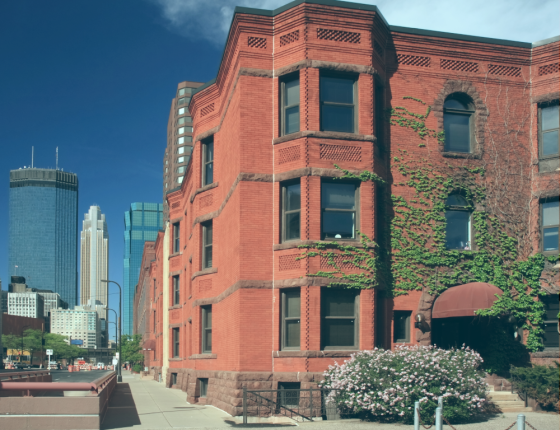We all want to live in safe and healthy communities. However, when cities pursue ambitious emissions goals, preserving affordable housing can be challenging. The City of Minneapolis launched the Affordable Housing Incentive Program in 2018 to proactively address this issue. The innovative program aims to cut emissions and reduce utility costs for low-income households while maintaining affordable housing.
How the 4d program works
Often referred to as the “4d” program — a reference to the tax class for low-income rental property — it serves to connect housing and energy policy. Property owners who keep at least 20% of their units accessible for households making 60% of area median income receive a 40% property tax break, solar incentives, and funding for energy efficiency projects. The City offers a 70% cost match on eligible energy efficiency projects, with maximum funding per property of $50,000. Funding is allocated through the 4d Green Cost Share program.
Making an impact
In 2018, the program’s pilot year, the City received cost-share applications from three properties with a total of 36 units. Together, the applications included 16 projects with LED lighting upgrades, insulation improvements, high-efficiency boiler replacements, and high-efficiency water heater updates. The combined potential energy savings from all projects totaled 730 million British thermal units (MMBtu — a common measurement for fuel energy) per year.
The program was opened to all Minneapolis property owners in 2019, and another 23 properties with a combined 117 units applied for energy efficiency project funding. The approved projects saved 1791 MMBtu that year. In 2020, program participation increased to 28 properties (107 units total), resulting in 2728 MMBtu saved. Program participation in 2021 included 25 properties (94 units), which resulted in 1219 MMBtu saved.
Since launching the program in 2018, Minneapolis property owners have saved 6468 MMBtu, reduced their energy bills by approximately $43,000 per year, and offset 756,756 pounds in carbon dioxide emissions. This is equivalent to the heating and electric use of 41 single-family homes (based on the U.S. Environmental Protection Agency’s Greenhouse Gas Equivalencies Calculator).
Keys to success
The program’s success can be attributed to the strategic coupling of affordable housing with energy policy. Participation has been strong thanks to the City’s streamlined outreach and application processes, high cost match, general project management support, assistance reviewing bids, and help for participants navigating utility programs.
CEE supports the 4d program with outreach, technical assistance, and project management. We work closely with participating properties through the entire process, starting with helping owners sign up for existing utility rebate and audit programs. If their properties don’t qualify for an existing program, our team will provide energy assessments as needed.
CEE also helps owners calculate the cost share between City and utility funding, as well as complete and submit the City’s energy efficiency cost-share application. After applications are approved, CEE guides property owners through utility rebate programs and helps them find and compare bids from local contractors.
The program is a highly successful component of Minneapolis’s climate change and environmental justice initiatives, recognized among the Mayors and Climate Protection Center’s 2019 Best Practices.
How to apply
Applications for the 2022 Affordable Housing Incentive are now being accepted until January 7, 2022. The 4d Green Cost Share program has a rolling deadline with the first round of applications due in March 2022. If you are a property owner who wants to learn more about the program or a city considering creating a similar program, please contact Grant Carlson at gcarlson@mncee.org for more information.
